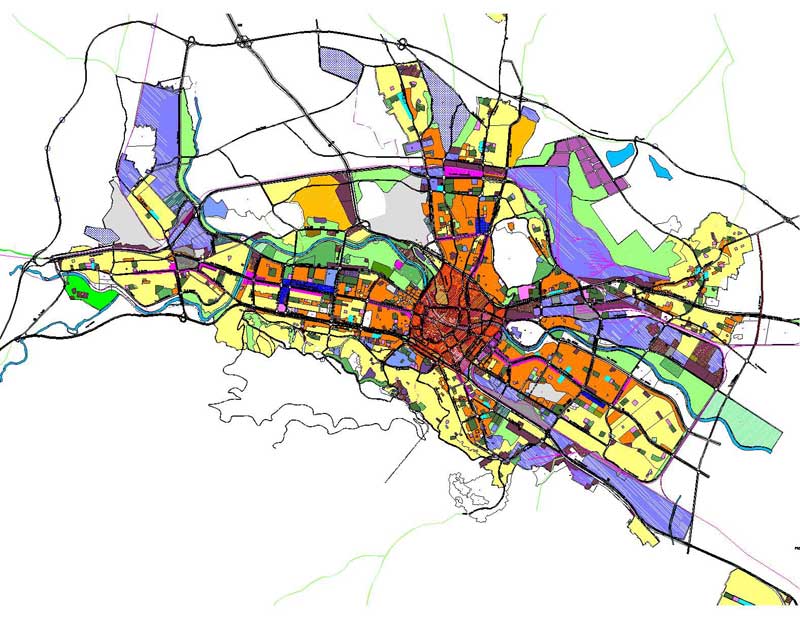Common Zoning Challenges for Florida Beverage Manufacturers

One of the greatest challenges to opening or expanding an alcoholic manufacturing plant–whether brewery, winery, or distillery–is complying with local zoning ordinances. While many Florida communities have enacted specific craft beverage ordinances, most have not. As a result, getting that all-important zoning approval for a new or amended alcohol manufacturing or retail license can pose a time and cost burden, or worse, stop an applicant dead in its tracks.
We’ve discussed zoning before: Brewers’ Law 101: Local Zoning Approval and Before Choosing a Beverage Manufacturing Location: 5 Questions. In this post, we focus on common zoning challenges faced by Florida beverage manufacturers.
Manufacturing in a Commercial Zone; Retail in an Industrial Zone
The business model for a Florida craft beverage manufacturer typically involves two “uses” sitting side-by-side: a manufacturing plant and a retail store. The combination of product manufacturing and on-premises sales to retail customers is unique in the commercial products industry. This uniqueness is often reflected in municipal zoning codes.
The zoning codes of many Florida communities (whether towns, cities, or counties) have distinct zones for “industrial uses” and “commercial uses.” Heavy Industry and Light Industry zones are designated for manufacturing. In some cases, retail store fronts are prohibited in Industrial zones (or if not prohibited outright, subject to conditional use, as discussed below). Likewise, Commercial ones are often designated for retail stores, restaurants and bars. Zoning ordinances also prohibit “manufacturing” activities from taking place in a Commercial zone.
While alcoholic beverage “manufacturing” can look like very different things–a small, neighborhood brewpub with a 1 barrel brewhouse versus a large, industrial manufacturing and canning production plant–some zoning ordinances do not recognize the difference. Unless a community’s zoning process allows some flexibility, a typical manufacturing and retail model might not work in these communities.
Schools and Churches Separation Requirements
Florida law and many local zoning ordinances prohibit the sale of alcoholic beverages within a certain distance of churches and schools. At a minimum, Florida law requires that alcoholic beverage retailers (including taprooms, tasting rooms, and distillery gift shops) cannot be located within 500 feet of a public or private elementary school, middle school, or secondary school, unless local ordinances provide otherwise.
The zoning ordinances of many Florida communities are often more restrictive than Florida law. It is typical for local ordinances to require at least 1,000 feet of separation between a alcoholic beverage retailer and a school, as well as churches and other places of public worship. Some communities also put restrictions on how close an alcoholic beverage retailer can locate near to residential areas generally.
What makes compliance with schools and churches separation requirements more difficult is that fact that ordinances often define “schools”, “churches” and “separation” differently. For some communities, “schools” includes not only public and private schools, but also daycares, after-school care, and other educational facilities. “Churches” may or may not include storefront churches located in commercial centers not designated as religious use. The manner of measuring the separation between the retailer and the school or church differs among communities. For some, separation is measured from property-edge to property-edge in a straight line. For others, the distance of separation is measured from doorstep to doorstep as a pedestrian would travel while obeying roadway laws.
Time-Consuming and Costly Conditional Use Procedures
Many Florida communities provide some level of flexibility in compliance with otherwise rigid zoning ordinance in the form of a conditional use procedure. Generally, conditional use procedures allow an applicant to request that the local government grant an exception to allow an activity in a zone that would not otherwise be permitted (such as, retail in an Industrial zone or manufacturing in a Commercial zone) or to allow retail alcohol sales to be closer to a school, church, or neighborhood than would be allowed.
Condition use procedures, however, can be costly and time consuming. In many cases, the applicant is required to pay a government fee and pay for a professionally prepared land survey. Conditional use procedures often require the application to be consider at one or more community board hearings, which are usually schedule several months in advance. It is often a requirement that the applicant, at its own expense, mail notices to residents and property owners within the area that is to be affected by the non-conforming use.
Conditional use is not guaranteed. After months of time and the expenses of complying with the conditional use procedures, the applicant’s request to use a certain location for a beverage manufacturing and retail space might be denied. In cases where the applicant’s request is granted, there might be conditions or limitations imposed that impact the applicant’s business expectations, such as limits on hours of operation, limits on production capacity, or prohibitions against distribution (all are common).
Do you have questions about complying with local zoning requirements in Florida? Contact us at contact@brewerlong.com to schedule a consultation with a beverage attorney.
Because we’re attorneys: This blog post is provided on an “as is” and “as available” basis as of the date of publication. We disclaim any duty to update or correct any information contained in this blog post, including errors, even if we are notified about them. To the fullest extent permitted by law, we disclaim all representations or warranties of any kind, express or implied with respect to the information contained in this blog post, including, but not limited to, warranties of merchantability, fitness for a particular purpose, title, non-infringement, accuracy, completeness, and timeliness. We will not be liable for damages of any kind arising from or in connection with your use of or reliance on this blog post, including, but not limited to, direct, indirect, incidental, consequential, and punitive damages. You agree to use this blog post at your own risk. Regarding your particular circumstances, we recommend that you consult your own legal counsel–hopefully BrewerLong.

